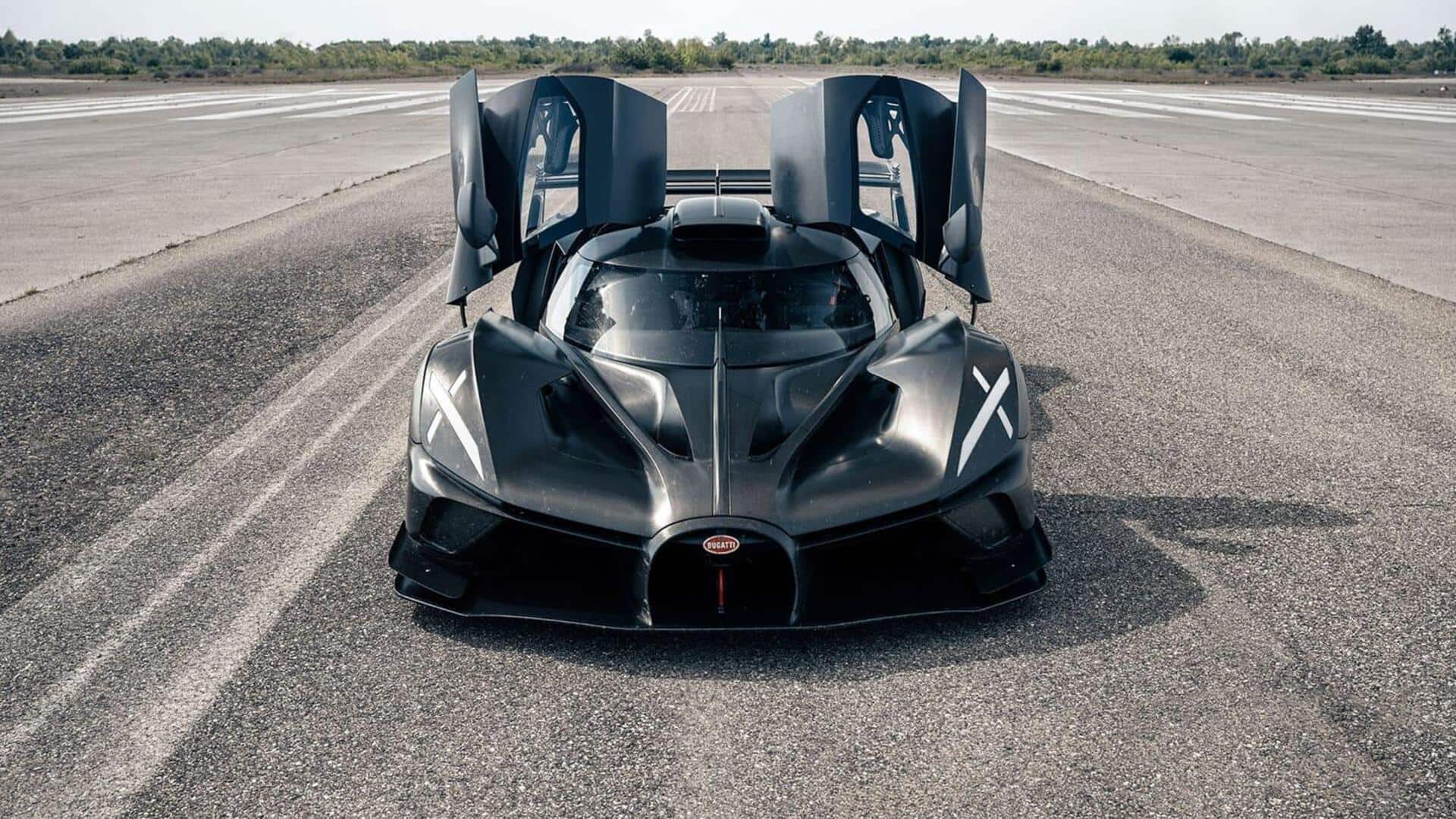
Lesser-known facts about Bolide, Bugatti's extreme track car
What's the story
Bugatti's Bolide is a hypercar built purely for speed and performance. Based on the Chiron, it's lighter, faster, and more aggressive. Notably, it is made for the racetrack; not the road. Only 40 will ever be made, each costing around €4 million. With extreme aerodynamics, huge power, and racing technology, the Bolide shows what Bugatti's famous W16 engine can really do when there are no limits.
Engine specs
Car generates an astonishing 3 tons of downforce
The Bolide is powered by an 8.0-liter W16 engine that produces a whopping 1,578hp. This is less than the prototype's output of 1,824hp. However, Bugatti assures that driving this beast will be "like a cannonball ride." The car also generates an astonishing three tons of downforce with its unique aerodynamic features such as a front splitter and adjustable rear diffuser. It weighs 1,450kg, almost 200kg more than the prototype. This was done to meet customer comfort requests and FIA regulations.
Tech specs
Suspension rods are 3D-printed and weigh just 100g each
The Bolide comes with titanium suspension rods that are 3D-printed and weigh just 100g each. Despite their lightweight, they can withstand an incredible braking force of 3.7 tons due to a printed inner structure. The rear tires of the Bolide measure a whopping 400mm in width, making it wider than its predecessor Chiron's rear tires at 355mm. The production version can pull an impressive 2.5G in corners, making it perfect for racetrack use.